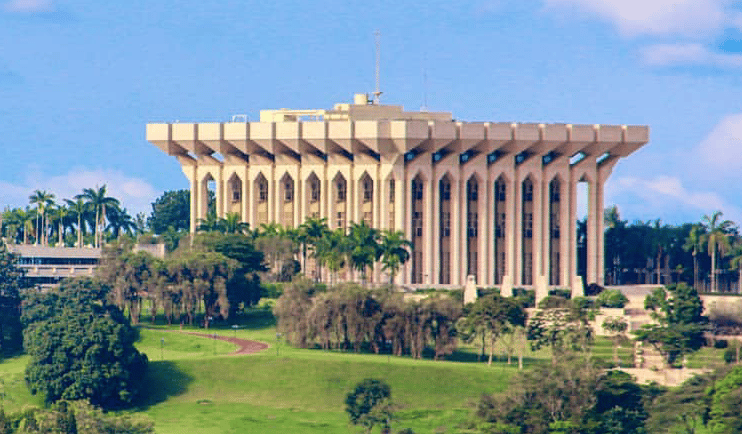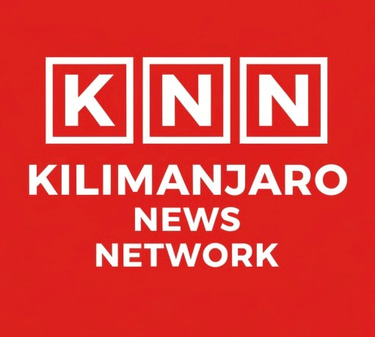The Silent Coup: How Ngoh Ngoh and Atanga Nji Are Plotting to Usurp Power and Discard Biya
Cameroon stands at the edge of a political deception so deep, it risks becoming the most cynical chapter in its post-independence history. While Paul Biya, aged 92, is publicly positioned as a candidate for an eighth term, mounting evidence suggests he may not have even signed his candidacy, nor fully comprehend that an election is underway. In his absence, a silent power grab is taking shape. This op-ed explores how Ferdinand Ngoh Ngoh, with the tactical support of Paul Atanga Nji, is exploiting Biya’s cognitive decline to orchestrate a quiet coup. Their strategy is clear: use Biya’s name and authority to stage-manage the election, then quietly discard him and install themselves at the helm. This is not succession, it is usurpation, wrapped in the familiar cloth of continuity. If successful, it will mark not just the end of Biya’s reign, but the beginning of an even more hollow regime, one built not on legitimacy, but on opportunism and deceit.
POLITICS
E. N. Quenti
7/27/20253 min read


Speculation is swirling in Yaoundé and with good reason. As the nation approaches what should be a routine electoral ritual under the Biya regime, insiders suggest something more sinister is at play. Word is, Paul Biya may not have even signed his own candidacy for an eighth term. At 92, in visible cognitive decline, there are growing doubts that he even fully understands an election is underway, let alone that his name has once again been placed on the ballot.
And this raises a darker, more unsettling question: if Biya isn’t aware, who is running in his name?
The answer is becoming clearer by the day. Ferdinand Ngoh Ngoh, Secretary-General at the Presidency, appears to be orchestrating a quiet but strategic takeover, one that uses Biya's fading presence as both shield and sword. This is not about loyalty to Biya. This is about exploiting his weakness to seize the very thing Biya has refused to grant for decades: succession.
For years, Biya made it his mission to deny everyone, including Ngoh Ngoh and Atanga Nji, a legitimate claim to power. His longevity was his strategy. By never naming an heir, he made himself irreplaceable. But that strategy only works when the emperor is still coherent. Today, Paul Biya is no longer the calculating tactician of old. He is fragile, dependent, and increasingly absent from the day-to-day operations of the state.
Ngoh Ngoh sees his moment.
With Biya unable to resist or even fully comprehend, Ngoh Ngoh is attempting what many within the regime long suspected he’d try: to step into the vacuum, use Biya’s name as cover, and position himself as the de facto successor. If successful, it would be the most quiet and cynical coup in the nation’s history, not a military overthrow, but an administrative hijacking.
And he is not acting alone.
Paul Atanga Nji, Minister of Territorial Administration and regime enforcer-in-chief, is part of this plan. With his grip on the security forces and his deep knowledge of how to rig, repress, and realign, Atanga Nji offers the muscle to Ngoh Ngoh’s manoeuvring. Together, they form a partnership of convenience, bound by ambition and a shared understanding: Biya is no longer the source of power, he is its disguise.
The plan is simple but ruthless:
Run Biya’s candidacy through opaque processes.
Control the electoral narrative while keeping the president largely hidden from public view.
Win the election in Biya’s name.
Then, when the time is right, discard him quietly, whether through orchestrated retirement, managed decline, or funeral rites.
Step in as "caretakers" in the name of continuity.
Claim legitimacy not through popular mandate, but by proximity to the throne.
It’s textbook political parasitism, using the host until it’s no longer needed, then emerging as the new face of power. But here’s the danger: Ngoh Ngoh and Atanga Nji are not trying to rebuild or reform. They are not visionaries. They are survivors, functionaries of a decaying system trying to prolong their own relevance. Their leadership, if it ever becomes official, will not signal a new era. It will be an extension of the old, just more brittle, more desperate, and even more disconnected from the will of the people.
Let’s be clear: what’s happening now is not governance. It’s a power heist, carried out under the guise of continuity. A dying man’s identity is being weaponized to install a successor he never endorsed. It is not only cynical, it is dangerously destabilizing.
Cameroonians must not be fooled by this choreography of control. The problem is no longer just Biya. It is those who have learned to hide behind him, and are now preparing to rule without him, but still in his name.
History will not forgive a people who allow themselves to be ruled by ghosts and opportunists. If this silent coup succeeds, it will be not just the end of the Biya era, but the beginning of something far more hollow: a regime without even the pretence of legitimacy. Just shadows ruling shadows.
And at that point, the real question will no longer be: Who is in charge?
It will be: Why did Cameroonians let them do it?

